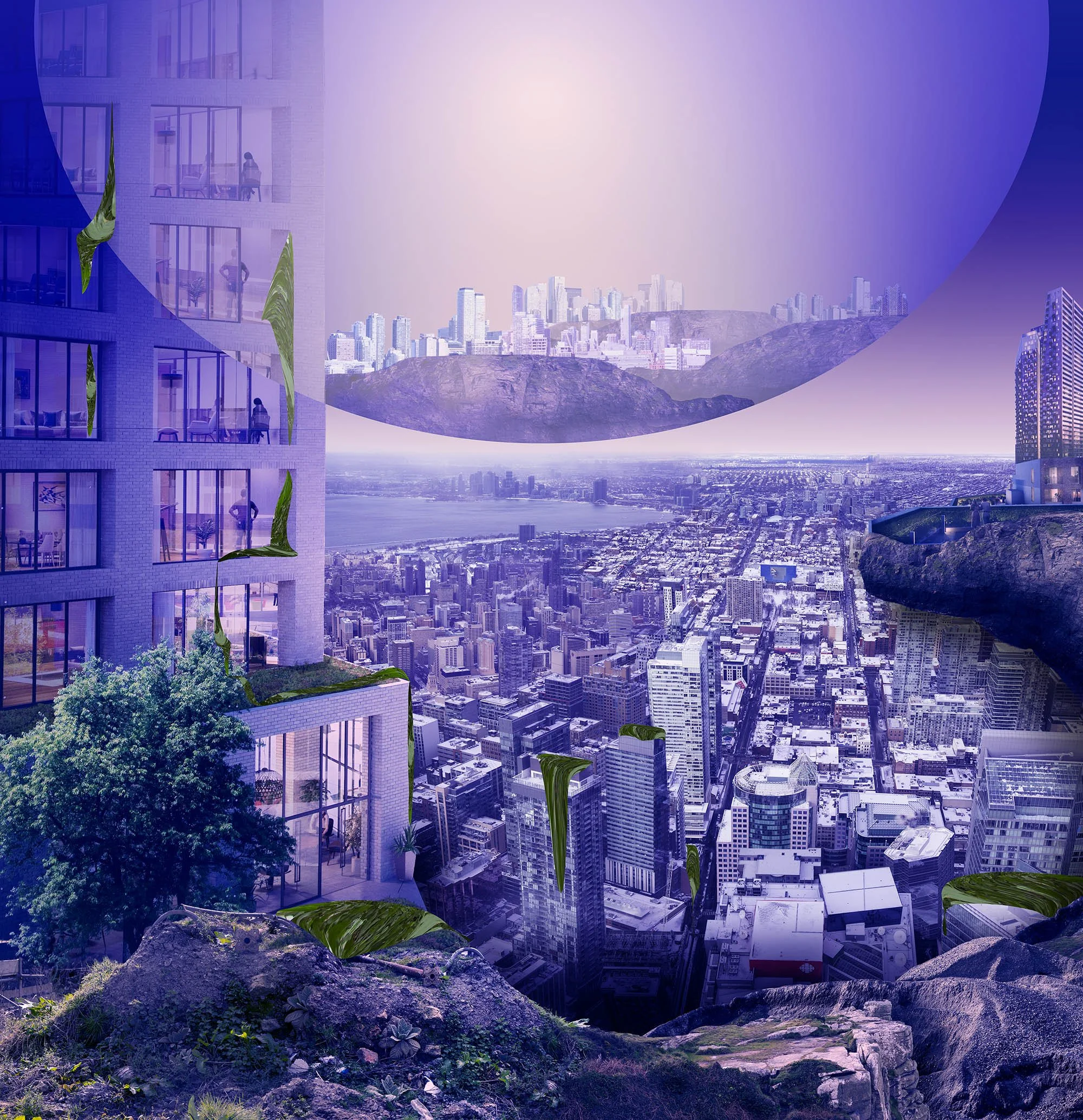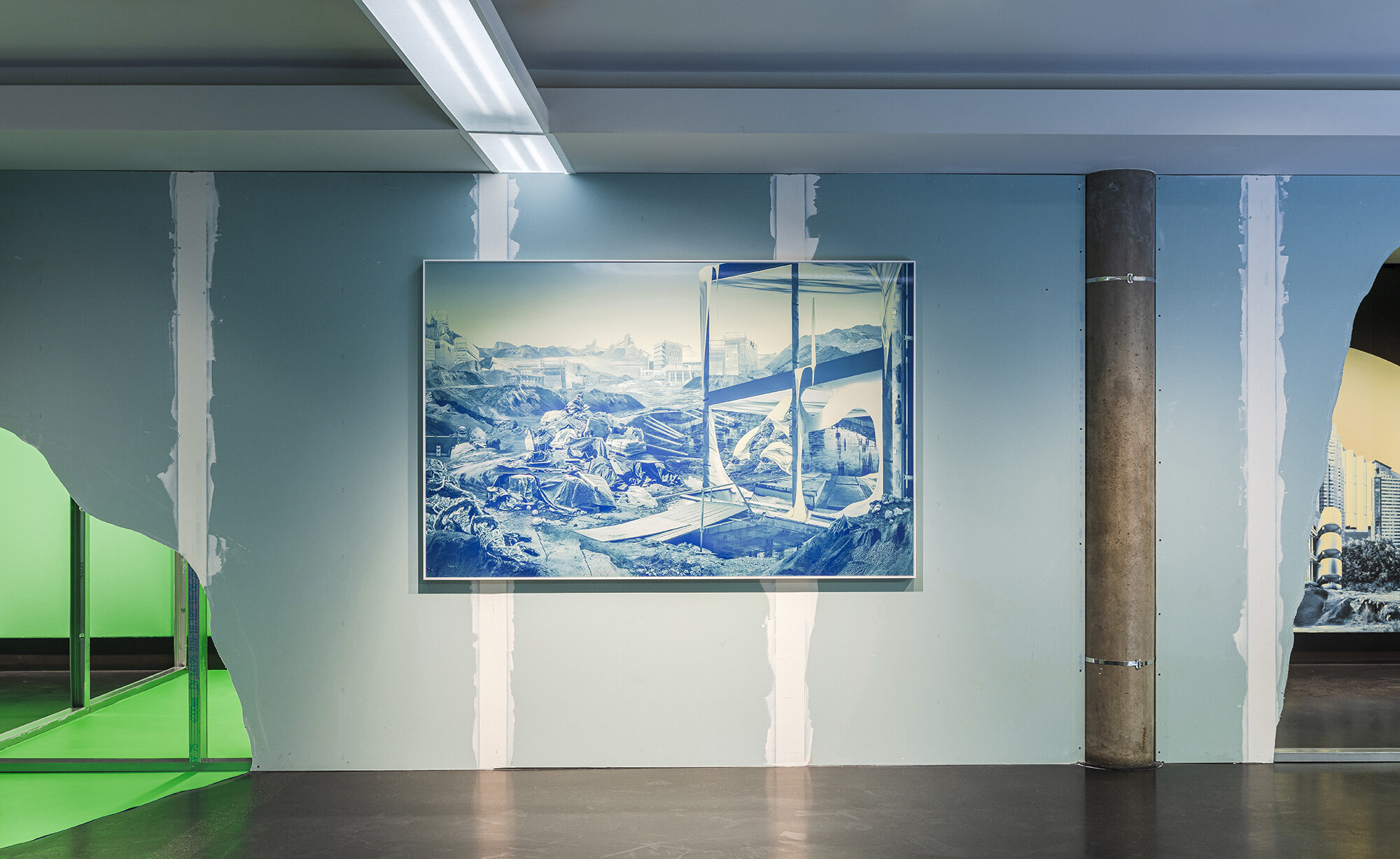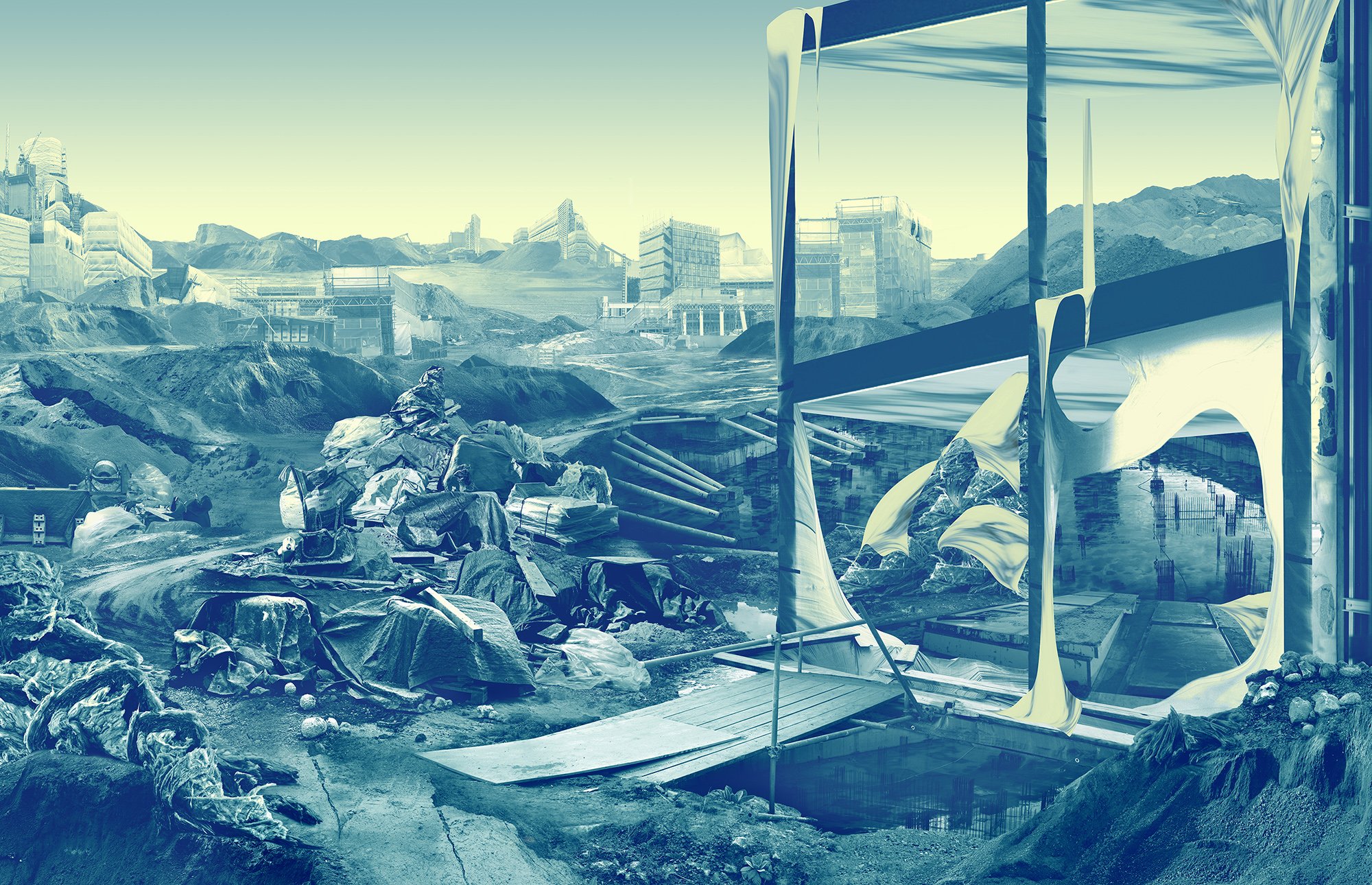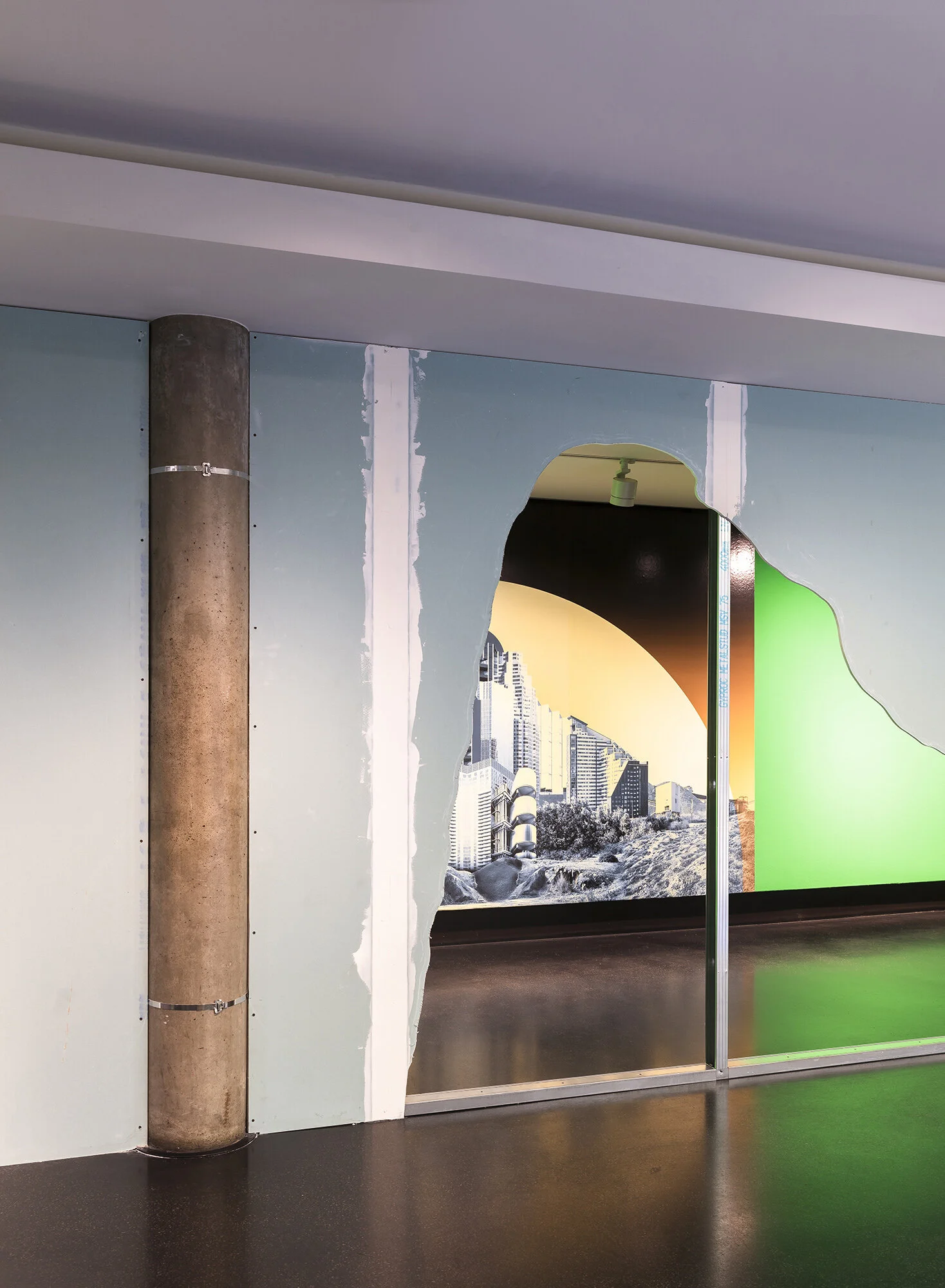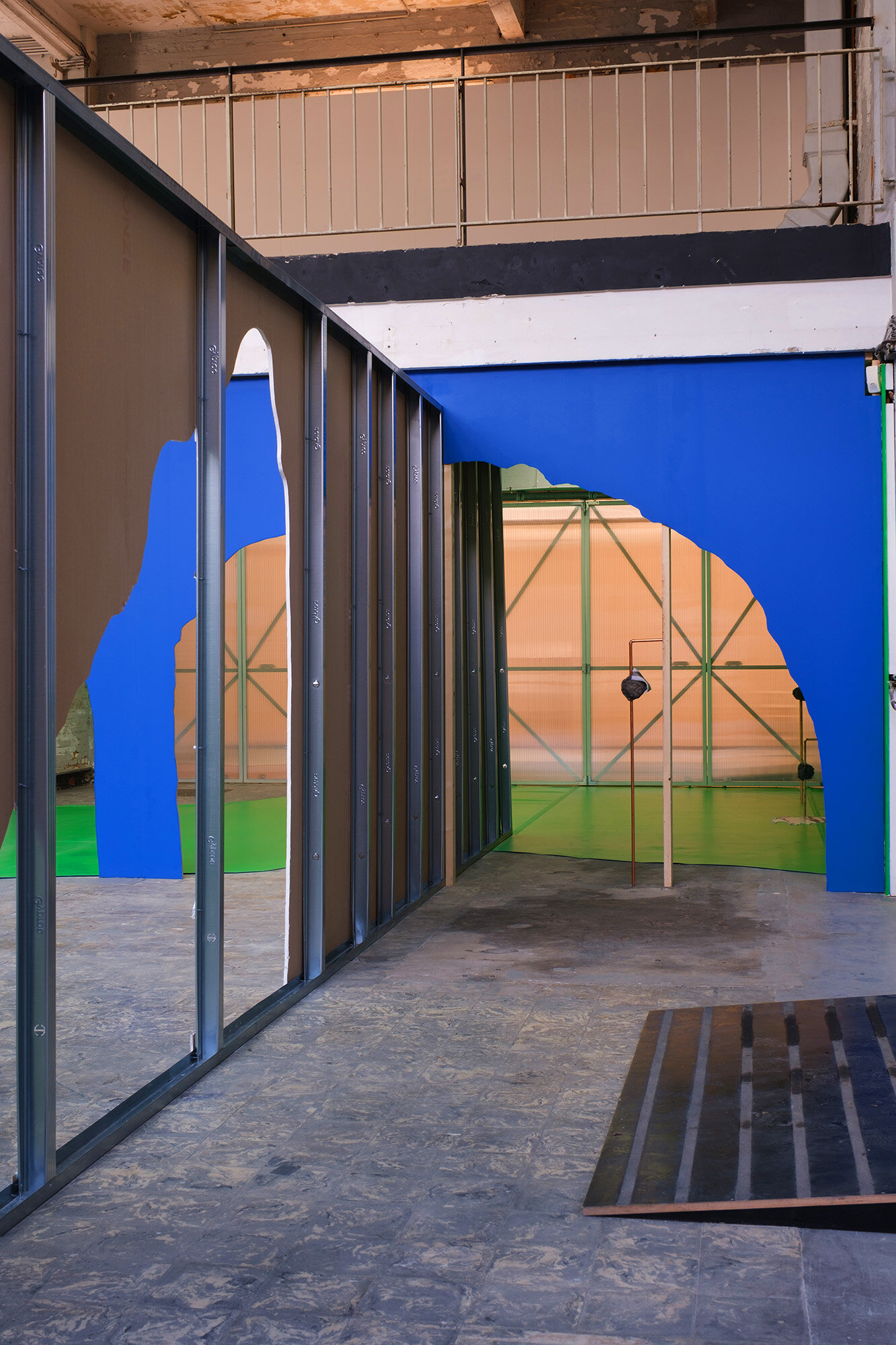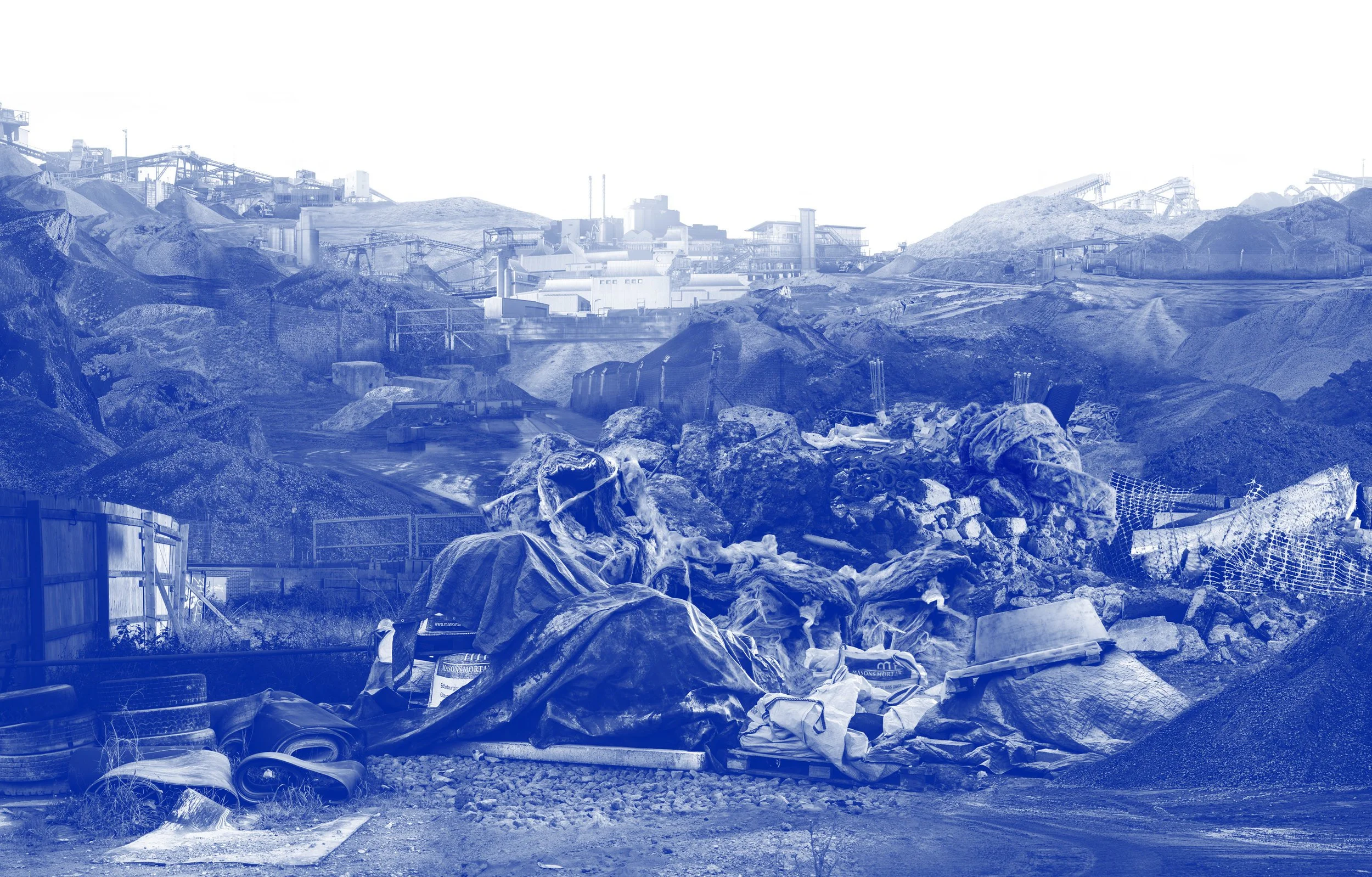REMAINS IN DEVELOPMENT
2020/2021
Touring exhibition, co-commissioned by C/O Berlin and Kunsthal Extra City Antwerp
Installation view Kunsthal Extra City Antwerp
Text by Dr. Kathrin Schönegg, C/O Berlin
Smiling and larger than life, the perfectly styled single woman of the future gazes out at us. Her light-drenched luxury apartment in a glass-fronted skyscraper towers over a futuristic urban panorama. By now, we’ve long grown accustomed to such oversized advertisements and colorful billboards in the public space, to the point where we hardly notice them, at least not consciously. But still, such images cleverly play on our hopes and desires. They promote the glossy opportunities an urban life promises, albeit one that has come to seem suspiciously interchangeable across the world’s metropolises.
In her work, British artist Felicity Hammond confronts the social, political, and economic contradictions of the postmodern city, whose buildings and façades shape our collective identity and open up a future by obliterating the past. Hammond’s large- scale collages combine found images from glossy real estate brochures with her own photographs. They are reminiscent of apocalyptic historic images, but they never reveal the locations of the places they show or how they relate. Instead, the collages reflect the increasing homogenization of big cities, resulting from a process of urban development steered by power struggles between international real estate companies, profit-driven investors, and gentrification critics.
In Hammond’s work, advertising’s bold promises meet postindustrial mise-enscènes formed of car tires, construction debris, bags of plaster, wooden pallets, and abandoned materials from large-scale construction sites. It appears that – when it comes to urban planning—digitality and reality, plan and execution, utopia and dystopia exist in close proximity. Only partly framed, Hammond’s collages are often displayed open to the environment in which they are shown. The artist adapts the materials and format of the work to fit the given exhibition space. In doing so, she underscores the lack of materiality and the variability of the digital image. Lacking a fixed form, the work extends from the wall into three-dimensional space.
Installation view C/O Berlin
Installation view Kunsthal Extra City Antwerp
In tandem with the exhibition at C/O Berlin, the works extended to advertising columns, thus returning them to an urban context. These five objects were positioned at B-Part Am Gleisdreieck, in front of Kühlhaus Berlin in Luckenwalder Straße and around Amerika Haus.
Accompanied by Property, Published by SPBH Editions, 2019


